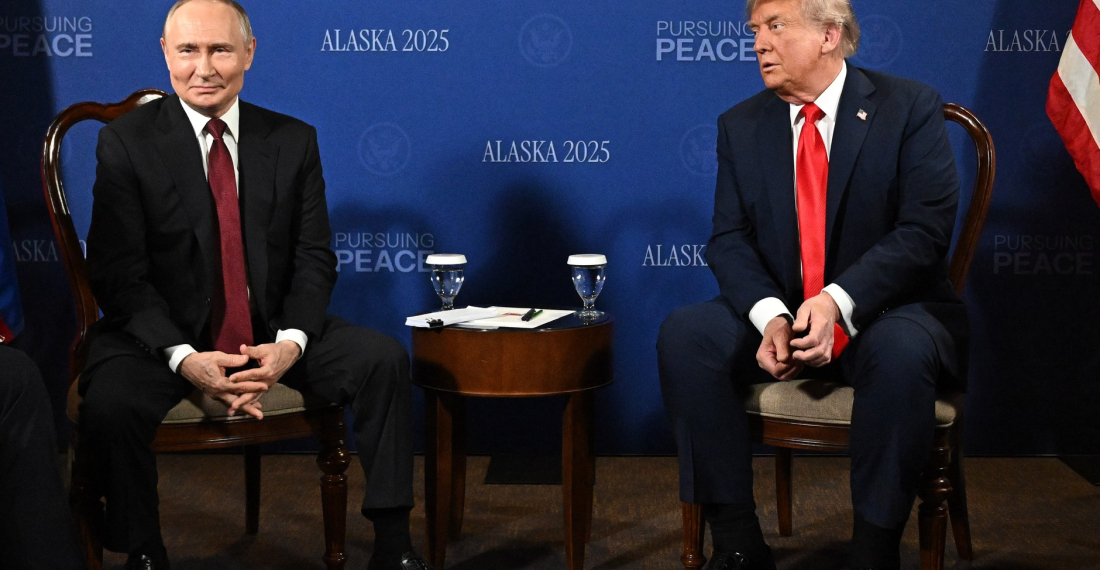This is a comment by the editorial team of commonspace.eu
Russian president, Vladimir Putin, was in Alaska for only six hours, for his summit meeting with US president, Donald Trump. Trump emboldened by his use of choreography a week before, when dealing with the Armenian and Azerbaijani leaders at the White House, tried again on Friday (15 August) in Anchorage: Red carpet, fighter aircraft lined up as if for inspection, and a backdrop with the optimistic message "pursuing peace" for after. But the sly fox of the Kremlin outsmarted the usually verbose real estate dealer. Putin used the choreography for his own advantage, making Trump look like an extra in a movie.
The six hours that the Russian leader spent on US soil, may not have changed the world. Nothing seems to be have been agreed, and Putin and Trump left a press conference hurriedly after making brief statements, without taking questions. But the Alaska summit left Vladimir Putin looking strong and emboldened. With one stroke he ended his international isolation, which has been all but total, since his invasion of Ukraine in February 2022. It brought Russia where it has wanted to be for the last thirty years – looking as the equal and natural partner of the US. And you Europeans and Ukrainians don’t you dare put spokes in our wheels, president Putin said defiantly.
The world must now pick up the pieces, and hope that Trump will see the error of his ways.
source: This is a comment by the editorial team of commonspace.eu






